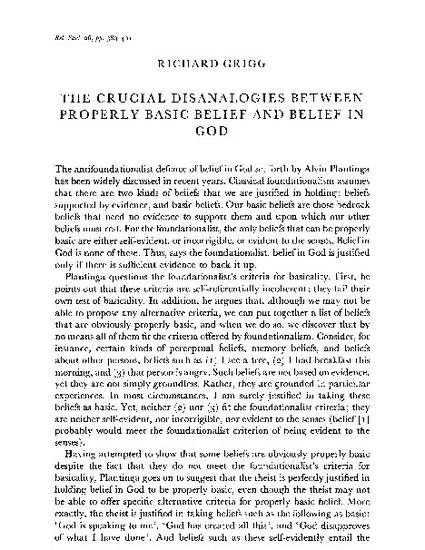
The antifoundationalist defence of belief in God set forth by Alvin Plantinga has been widely discussed in recent years. Classical foundationalism assumes that there are two kinds of beliefs that we are justified in holding: beliefs supported by evidence, and basic beliefs. Our basic beliefs are those bedrock beliefs that need no evidence to support them and upon which our other beliefs must rest. For the foundationalist, the only beliefs that can be properly basic are either self-evident, or incorrigible, or evident to the senses. Belief in God is none of these. Thus, says the foundationalist, belief in God is justified only if there is sufficient evidence to back it up.
Grigg, R. (1990). The crucial disanalogies between properly basic belief and belief in God. Religious Studies, 26(3), 389-401. doi: 10.1017/S0034412500020540
